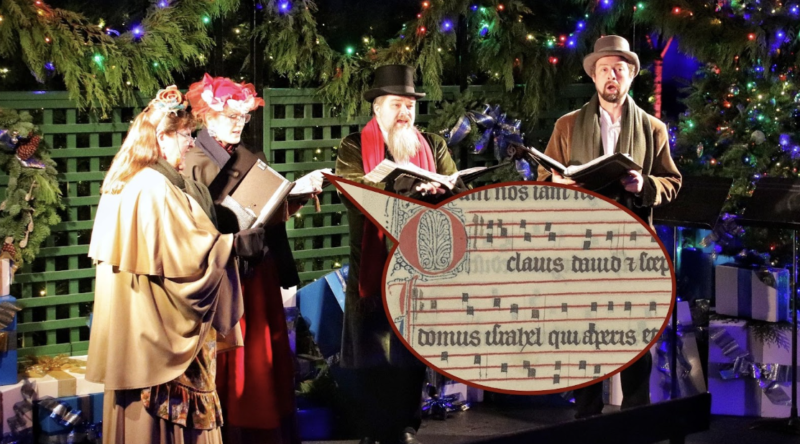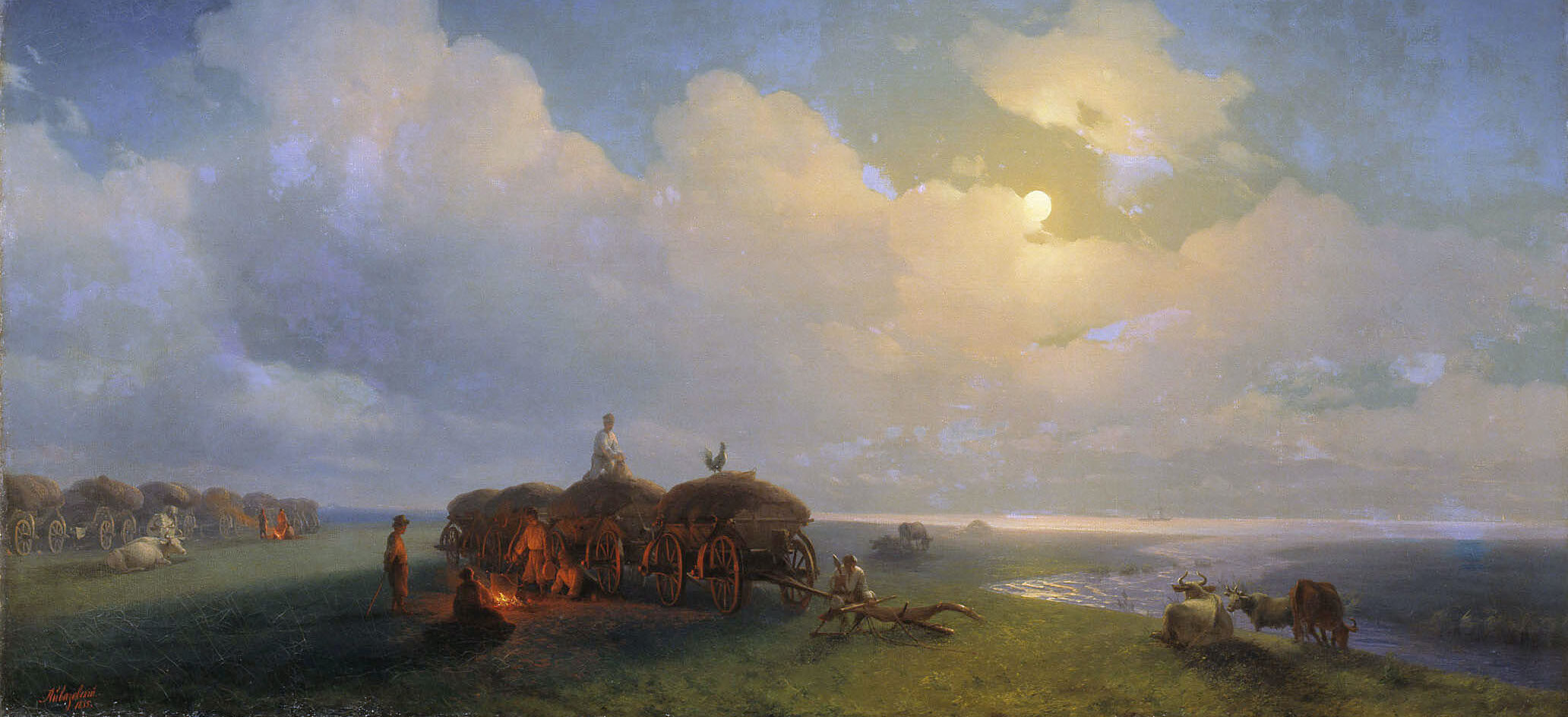Tag: Culture
Now That’s What I Call Advent

Do you hear what I hear? The streets outside permit no escape from this sound. Any refuge at home is invaded by a TV ad. Even the inner confines of your mind find no protection from that same string of notes playing over and over again. Of course, I speak of the four horsemen of Christmas: Bing Crosby, Burl Ives, Michael Bublé, and Mariah Carey.
Love it or hate it, Christmas music is perennially around. When we hear these songs (voluntarily or not), we get a sense of what the world thinks this season is about: Snow, Santa, Romance, Romance with Santa. There generally is nothing wrong with enjoying these songs (this author happens to be a big fan of Wham!’s “Last Christmas”). But occasionally something strange echoes from the Walmart loudspeakers: a song in Latin—about Jesus Christ! Gloria in Excelsis Deo! This “ghost of Christmas past” transcends the kitsch and reminds us of the true “chart toppers” of Christmas and Advent: the sacred music of the Church.
Enter the O Antiphons. These seven phrases, each calling upon a different name of the prophesied Messiah, solemnize Vespers (the Church’s evening prayer) each night in the week preceding Christmas. Appropriate for the season of Advent, these antiphons do not anticipate Christmas Day with chestnuts and Jack Frost, but with contemplation of him who is coming into the world: “O Emmanuel, our King and Giver of Law: come to save us, Lord our God!” Their ornate and haunting melodies and rich theological meaning make them a group of “classics” that cloistered religious look forward to every year. The O Antiphons’ yearly appearance makes them much like our favorite Christmas hits, but, unlike the sleighride songs, they have been popular for at least a millennium.
The question may arise: why celebrate Christ’s coming with such solemnity, if he has already come into the world? Religious life, the cradle of liturgical chant, can help us find an answer. Saint Thomas writes that the contemplative life “bestows on us a certain inchoate beatitude, which begins now and will be continued in the life to come” (ST II-II, q. 180, a. 4). Like an honored family tradition that brightens Christmas cheer each season, the O Antiphons beckon the religious to grow closer to the Lord. They help us to contemplate the king “who is and who was and who is to come” (Rev 1:8) and remind us to ask for the grace to be prepared to meet him face to face.
Not all of us wear a habit or are in the habit of praying Vespers in a choral setting. But every year, our most secular of cultures offers us a unique opportunity to contemplate the greatest of mysteries. As strange as it is to hear “Christ the Savior is born” as you try to find the best (or cheapest) candle at TJ Maxx for your nephew, it can turn into an example of God’s inescapable grace. Take to heart those words that faintly sound through the store, and ask for that grace to be prepared to meet him when he comes. Who knows, you may even hear the O Antiphons hidden away on that playlist.
O King of all nations and keystone of the Church: come and save man, whom you formed from the dust!
✠
Photo by Mario Mendez on Unsplash; Image: Antiphonaire dominicain, O Clavis
Originally posted on Dominicana Journal
So Much Time and So Little to Do

We always seem to be busy with so little time and so much to do. There always seems to be a list of tasks a mile long. Tasks get added to that list faster than we can complete them. Many of these tasks became impossible during the height of COVID. Locked down with nowhere to go and no one to see, some of us had free time for the first time since we were children.
As restrictions from the pandemic have loosened we may be thinking, “What a relief to be busy again!” We no longer have to figure out what to do when there is nothing that needs to be done. We have all our responsibilities back, responsibilities we’d missed because they were what gave structure and meaning to our lives. This is what the lives of adult, productive members of society are expected to look like, but the pandemic made us ask, “What do I do with my time when there’s nothing more to produce and all my responsibilities have been met?
The pandemic may have brought this question to the forefront, but it is the same question that parents have to ask once their children leave home, that the aging have to ask as they retire from work. What do we do with the time when we aren’t working? The question can, of course, be asked earlier. It can even be asked now. In fact, as Christians, the commandment to keep holy the Sabbath compels us to ask this question every week. How do I rest on Sunday? How we approach Sunday can then serve as a paradigm for how we approach other situations where we find ourselves with time on our hands.
Sunday is meant to be a day of rest, a day of leisure. It’s a day when we spend our time doing things other than work. The worship of God is an obvious feature. Sunday should be a time when we pray, especially at Mass. While spending time with God is the most important way of resting on Sunday, it is not the only way. Leisure time can be spent enjoying the company of friends and family. This happens at church, but also Sunday dinner or visits to grandparents. These can be occasions for conversations wherein we all become philosophers, asking the deep questions of life while unpressed for time. We can think about who we are and stop long enough to recognize God’s grace in our lives. These activities show that resting on Sunday and enjoying leisure consist in far more than the absence of labor. These are the times wherein the bare necessities of survival have been met and the full flourishing of human life is expressed. For an extended discussion on what constitutes leisure, I highly recommend Josef Pieper’s, Leisure: The Basis of Culture.
Learning to enjoy leisure helps us flourish as wayfarers, but it also prepares us for eternity. As we allow the rest of Sunday to penetrate more of our lives, we prepare for eternal life when that rest will be our whole life. We will have no responsibilities in heaven. The worries and anxieties of Martha will no longer press upon us (Lk 10:38-42). Every need will be satisfied. Heaven will be all leisure. Alongside Mary, we will sit at the feet of Jesus. There will be only one thing necessary: to join all the saints and angels in worshipping and praising God. We will have so much time and so much to do!
Image: Ivan Aivazovsky, Chumaks Leisure
Originally posted on Dominicana Journal
